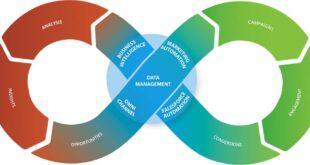Introduction
Digital manufacturing is a revolutionary approach to production that leverages technology to create smarter, faster, and more efficient processes. In this article, we will explore what digital manufacturing is, its benefits, and its applications in different industries.
What is Digital Manufacturing?
 Digital manufacturing is the use of digital technologies to optimize and streamline the production process. This includes the use of software, data analytics, and automation to create a more efficient and responsive production system. Digital manufacturing involves the integration of data, machines, and people to create a more interconnected and intelligent manufacturing environment.
Digital manufacturing is the use of digital technologies to optimize and streamline the production process. This includes the use of software, data analytics, and automation to create a more efficient and responsive production system. Digital manufacturing involves the integration of data, machines, and people to create a more interconnected and intelligent manufacturing environment.
Benefits of Digital Manufacturing
Digital manufacturing offers numerous benefits, including:
Increased Efficiency
Digital manufacturing allows for faster, more accurate, and more efficient production processes. By automating manual tasks, reducing downtime, and optimizing workflows, manufacturers can improve their efficiency and output.
Improved Quality
Digital manufacturing technologies enable manufacturers to monitor and control production processes in real time, ensuring that products meet the highest standards of quality and consistency.
Reduced Costs
Digital manufacturing can help reduce costs by eliminating waste, reducing lead times, and optimizing inventory levels. By streamlining production processes, manufacturers can achieve significant cost savings and increase their profitability.
Enhanced Flexibility
Digital manufacturing enables manufacturers to quickly adapt to changing market conditions, customer demands, and production needs. With real-time data and analytics, manufacturers can make informed decisions and adjust production processes accordingly.
Applications of Digital Manufacturing
Digital manufacturing has numerous applications in different industries, including:
Automotive Industry
Digital manufacturing is transforming the automotive industry, enabling manufacturers to produce vehicles that are safer, more fuel-efficient, and better connected. With digital manufacturing technologies, manufacturers can optimize production processes, reduce costs, and improve the quality of their products.
Aerospace Industry
Digital manufacturing is also being used in the aerospace industry to create lighter, more durable, and more efficient aircraft. By leveraging data analytics and simulation tools, manufacturers can design and produce aircraft components that meet the highest standards of safety and performance.
Healthcare Industry
Digital manufacturing is being used in the healthcare industry to produce personalized medical devices and implants. With 3D printing and other digital manufacturing technologies, manufacturers can create customized products that are tailored to the specific needs of individual patients.
Consumer Goods Industry
Digital manufacturing is also transforming the consumer goods industry, enabling manufacturers to create more personalized and customizable products. With digital manufacturing technologies, manufacturers can produce products in small batches, allowing them to respond quickly to changing consumer trends and demands.
Challenges and Limitations
Despite its many benefits, digital manufacturing also presents several challenges and limitations, including:
Initial Investment
Implementing digital manufacturing technologies can require a significant upfront investment in hardware, software, and training. This can be a barrier for smaller manufacturers who may not have the resources to make the necessary investments.
Cybersecurity
Digital manufacturing technologies are vulnerable to cyber-attacks and other security threats. Manufacturers must take steps to protect their systems and data from these threats.
Skills Gap
Digital manufacturing requires a new set of skills and expertise, which may not be available in the existing workforce. Manufacturers may need to invest in training and education to build the necessary skills in their workforce.
Conclusion
Digital manufacturing is transforming the way we produce goods, enabling manufacturers to create smarter, faster, and more efficient production processes. While it presents several challenges and limitations, the benefits of digital manufacturing far outweigh the costs. As we move towards a more connected and intelligent manufacturing environment, digital manufacturing will become increasingly important for manufacturers of all sizes.
FAQ
What is digital manufacturing?
Digital manufacturing is the use of digital technologies to optimize and streamline the production process. This includes the use of software, data analytics, and automation to create a more efficient and responsive production system.
What are the benefits of digital manufacturing?
Digital manufacturing offers numerous benefits, including increased efficiency, improved quality, reduced costs, and enhanced flexibility. By leveraging digital technologies, manufacturers can optimize production processes, reduce waste, and improve the quality of their products.
What industries can benefit from digital manufacturing?
Digital manufacturing has applications in various industries, including automotive, aerospace, healthcare, and consumer goods. By leveraging digital technologies, manufacturers in these industries can create more efficient, cost-effective, and high-quality production processes.
What are the challenges of digital manufacturing?
The challenges of digital manufacturing include the initial investment required for implementing digital technologies, cybersecurity risks, and the skills gap in the existing workforce. Manufacturers must take steps to address these challenges to fully leverage the benefits of digital manufacturing.
How can digital manufacturing improve production processes?
Digital manufacturing can improve production processes by automating manual tasks, reducing downtime, optimizing workflows, and providing real-time data and analytics. By leveraging digital technologies, manufacturers can achieve greater efficiency, reduce costs, and improve the quality of their products.
References
- “What is Digital Manufacturing?” TWI Global. https://www.twi-global.com/technical-knowledge/faqs/what-is-digital-manufacturing
- “The Advantages of Digital Manufacturing.” Industry Week. https://www.industryweek.com/technology-and-iiot/article/22027845/the-advantages-of-digital-manufacturing
Conclusion
In conclusion, digital manufacturing is a transformative approach to production that can create smarter, faster, and more efficient processes. By leveraging digital technologies, manufacturers can achieve significant benefits, including increased efficiency, improved quality, reduced costs, and enhanced flexibility. While digital manufacturing presents challenges and limitations, the benefits far outweigh the costs. As we move towards a more connected and intelligent manufacturing environment, digital manufacturing will become increasingly important for manufacturers of all sizes.
 Sale Success Make More Money Online
Sale Success Make More Money Online






